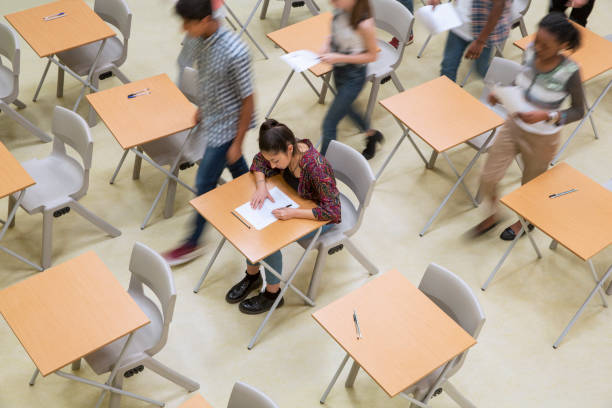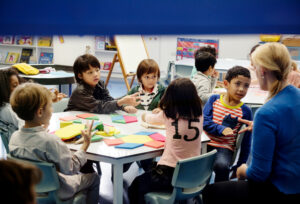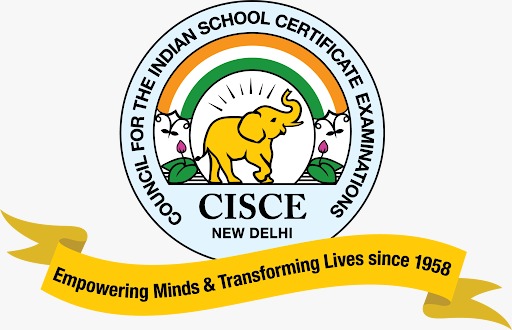Education today isn’t just about scoring marks — it’s about shaping students who can thrive in a fast-changing world. More parents are seeking learning environments that foster curiosity, critical thinking, and global perspectives. One curriculum that stands out for offering exactly that is the IGCSE. But what does it really mean, and why is it so highly regarded?
Let’s explore what the IGCSE is all about, and why it’s opening doors for students across the globe.
IGCSE Full Form: What Does It Stand For?
IGCSE stands for International General Certificate of Secondary Education.
Developed by Cambridge Assessment International Education, part of the University of Cambridge, it is designed for students aged 14 to 16. The IGCSE is equivalent to Class 10 in India or GCSE in the UK and is known for its international approach to learning. It’s also closely aligned with the Cambridge Curriculum, which focuses on holistic development and lifelong skills.
Key Features of the IGCSE Curriculum
The IGCSE is not just another examination system — it’s a philosophy of education that focuses on developing skills for life, not just for exams.
International Perspective
Learning through global case studies, real-world examples, and diverse subjects helps students develop a broader outlook.
Flexible Subject Choices
Students have the freedom to choose from over 70 subjects ranging from sciences and mathematics to arts, humanities, and technology.
Skill-Based Learning
The curriculum encourages students to think critically, solve problems creatively, and express themselves effectively — aligning with the key habits for academic success that build confident, independent learners.
Why More Parents Are Choosing IGCSE in India
For families in India looking for a modern and holistic education, the IGCSE is an attractive choice. It equips students not only for local success but also for global competitiveness.
Parents appreciate how it builds a strong foundation in English, fosters independent learning, and prepares students for international education systems. It’s not limited to academic growth — it’s about developing adaptable, confident individuals ready for a global future. This shift also reflects the growing importance of the power of education in shaping a better tomorrow.
How to Choose the Right IGCSE School
Finding the right school can make all the difference in a student’s IGCSE journey. Look for schools that offer a nurturing environment and a balanced approach to academics and extracurriculars. Institutions with experienced teachers, international exposure programs, and student-friendly assessment methods provide an ideal learning space. Many Cambridge schools in Whitefield follow globally recognized curricula that equip students with the skills and mindset needed for success in a dynamic world. Visiting campuses and interacting with educators helps parents make informed choices.
Global Recognition of the IGCSE Qualification
One of the most significant strengths of the IGCSE is its global recognition.
Educational institutions and employers around the world respect the IGCSE for its academic rigour and emphasis on essential life skills. Students with an IGCSE background often find it easier to transition into international high school programs like the IB Diploma or A Levels. It also enhances their applications for universities abroad.
Future Pathways After IGCSE
Completing the IGCSE opens several doors for students, both in India and internationally.
Many students move on to senior secondary programs like the IB Diploma Programme or Cambridge A Levels. Others opt for national boards with ease, given the strong foundation the IGCSE provides.
For those planning to study abroad, the IGCSE offers a head start. Universities appreciate the practical learning skills, research abilities, and communication strengths that come from this curriculum.
Whether a student’s goal is to study in India or pursue higher education overseas, the IGCSE paves the way with flexibility and confidence.
What Makes IGCSE Stand Apart
Here’s why the IGCSE is gaining popularity among students and schools worldwide:
- Encourages independent thinking and creativity
- Provides flexibility in subject selection based on interest and aptitude
- Focuses on understanding concepts over rote learning
- Prepares students for future academic and career challenges
- Develops communication and problem-solving skills essential for global success
IGCSE vs Other Curriculums: Key Differences
| Aspect | IGCSE Curriculum | Traditional Curriculums |
| Global Exposure | International examples and case studies | Region-specific focus |
| Learning Style | Practical, analytical, skill-based | Theory-heavy, exam-oriented |
| Assessment | Variety of methods including coursework | Primarily written exams |
| Future Opportunities | Widely accepted globally | Mostly recognized nationally |
Conclusion
The IGCSE is more than just a certificate — it’s a passport to a world of opportunities. Understanding its full form — International General Certificate of Secondary Education — is only the first step.
What truly matters is how this curriculum shapes students into confident, capable individuals ready to take on future challenges, anywhere in the world. For parents seeking the right foundation for their child, the best schools in Whitefield offering IGCSE or Cambridge pathways combine academic excellence with global exposure and life skills.
FAQs
The full form of IGCSE is International General Certificate of Secondary Education.
IGCSE exams are administered by Cambridge Assessment International Education, part of the University of Cambridge.
Yes, IGCSE is recognized by leading Indian and international universities and is equivalent to Class 10 in India.
Students typically take IGCSE exams at age 14–16.
Yes, IGCSE provides a strong foundation for students pursuing IB Diploma, A Levels, or other international senior secondary programs.







